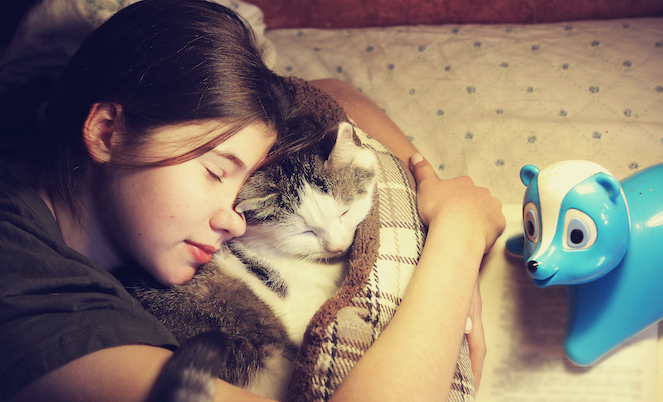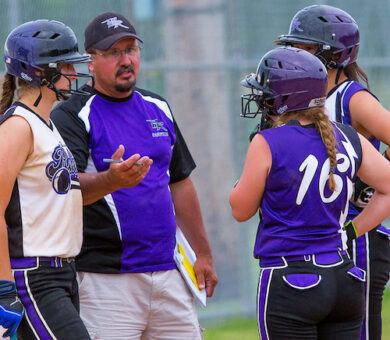How to Handle COVID Fatigue with your Athletes
COVID has been hard on everyone around the world. It has caused loneliness in the older population, frustrations in families with young children at home while trying to work in a remote environment and depression and anxiety in teens around the globe.
Why is COVID so hard on teens? They are not the ones at most risk with the virus, but they are at higher risk for depression, stress and anxiety. Why?
Many teens struggle with the pandemic because the routine and structure they are accustomed to has collapsed. They have lost connections at school; they are missing their friends. Many have lost normal high school events, such as homecoming or prom. Others have lost their sports seasons or are awaiting decisions about whether to continue their sports seasons. There is a huge amount of uncertainty about the future.
Teens fear what may come next and if “normal” will ever return. According to the Stanford News, “school closures and enforced social distancing have cut off many teens from major means of psychological support, putting them at higher risk of developing anxiety and depression.” (1)
For many teens, COVID fatigue has set in. They are tired of feeling trapped in their houses and virtual classrooms. They are restless. In their frustration, they may decide not to wear masks or social distance, increasing exposure.
How can high school coaches help their student athletes and teams overcome COVID fatigue and the depression and anxiety that come with it?
Here are some tips for helping student athletes who are struggling with COVID and the fatigue that has set in.

Take Care of Yourself First
The first step is to take care of yourself. High school coaches are people too, with lives and children and jobs that have also been affected by COVID. There has been a lot of change, disruption and, in some cases, loss of life during this pandemic. You must stay strong for your families and for your teams.
Find Ways to Keep the Team Together
Even though you can’t always practice as a team right now, you can try to keep the team together to combat loneliness and isolation.
Volunteer with your Team
Volunteering is a great way to ease the stress of the pandemic because it allows athletes to focus on something besides themselves and their isolation. It feels good to help someone else. Volunteering is a way to keep your team together and also brings some happiness.
Organize Virtual Practices
Many teams are still practicing online. The coach sends the drills ahead of time or is online demonstrating the drills, while the athletes watch and replicate with each other. Backyards, garages and basements have become new workout facilities. Athletes and coaches have found creative ways to bring practice home.
Practice Safely
Some coaches have found ways to practice safely using all the precautions like social distancing and mask-wearing. Where gymnasiums used to be shared with other sports teams, practices are not held one team at a time. Same with outdoor tracks and fields. In this way, teams have been able to practice together, just with more restrictions.
Different states have held different standards and mandates as far as pandemic guidelines are concerned, so some of this may depend on where you live.

Find Ways to Keep Athletes Engaged
It’s challenging to keep teens engaged in the first place, let alone in a pandemic with restrictions that have caused more isolation. Some coaches are using creative ways to keep teams together; here are some ways to keep them engaged.
Have them Report Workout Stats
Ask student athletes to record workout stats. This could be a shared online tally for all student athletes or one for each student. It could turn into a team competition as well. Try to make it fun.
Call your Athletes Regularly
Have check-ins, either scheduled or random, where you ask them how they are doing and put plans together for how to work on something. Maybe they need help with a virtual class or are struggling with being cooped up indoors. Simply hearing your voice could help them.
Text them
Though calling is more powerful because it is your actual voice, texting can also add value. Let them know you are paying attention and that you care. Encourage them as much as possible.
Give Athletes Projects or Challenges
Give them something to think about other than COVID. Team challenges or team projects could really keep them together as this virus continues to race through the country. You could even challenge other teams in the area or rivals in your conference.

Share Ways to Feel Connection
Outside of the team and school, help them learn ways to feel connection of any sort.
Suggest Ways to be with People
Meeting friends and visiting in a socially distant setting, with masks on, is better than being isolated. Seeing a grandparent through a glass window or outside in a socially distant setting can help both the child and the grandparent. Saying hello to a stranger gives the mind the assurance that you are not alone. Connection is such a huge part of who we are as humans. These little interactions add up and make a difference. Of course, the Centers for Disease Control (CDC) guidelines and your state and local mandates will come into play here.
Suggest Ways to be with Animals
Even animals can make a difference when it comes to staying connected. Animals are usually loving and playful and are great for taking a break and letting go of stress and anxiety.
Suggest Getting Out into Nature
Sometimes, all the connection someone needs is to be outdoors with nature. To many, such an experience brings a calm and peace of mind. Even if it is cold, it is good to be outside with fresh air and different scenery than what is inside a house.

Encourage Athletes to Ask for Help
If you notice an athlete’s behavior that is out of character, encourage the athlete to talk and perhaps to find help. Asking for help is a sign of courage. There are a lot of resources to help teens in need.
Find the Resources They Need
You can help them and their families by both identifying signs that the teen may not be doing so well and informing them of resources that are available to them.
Support and Encourage Them
Showing support and encouragement may help the athletes feel more comfortable to talk about and be open with their issues. At the very least, it shows you care and are willing to help.
Have an Open Door Policy
Make sure they know they can talk to you anytime. Keeping tabs on how they are doing may allow you to put out fires before they become serious.
Communicate With the Parents
Though their parents may also be picking up signs of struggle, it is worth it to communicate with them your concerns about their child.

Help Athletes Find Gratitude
Being grateful can help steer them away from their disappointments and shed light on what and who is important to them.
Write Notes to People They Are Grateful for
Maybe it’s a grandparent or a brother or sister that has moved away. Maybe it is a frontline worker who they know or even don’t know.
Call Someone they Miss Due to COVID
Calling a grandparent or a relative that lives in another state or country could be a way to show gratitude for the other person.
Appreciate their Family and Friends
Help them realize and appreciate the family members, friends and coaches who care about them and support them.

Help Athletes Free the Mind
Just giving the mind a mental break can go a long way in dealing with any crisis. COVID fatigue is wearing. Mental breaks should be an essential part of the day.
Introduce Meditation
Meditation is a way to calm the mind and do some reflecting. This is a great way for them to find gratitude and to stay centered as a student athlete. There are many apps and programs that assist in meditation, where the athlete can learn more about meditation.
If meditation is too difficult for a teenager to grasp, then quiet time works the same way.
Introduce Yoga
Yoga is very popular among athletes as a way to let go of stress and anxiety and let the body rest in poses. There are many classes and instructors online.
Encourage Playtime
Playtime is usually synonymous with fun time. Having fun is a way to lighten the mood, get the creative juices flowing and release the stress caused by the pandemic. Helping your student athletes find fun and/or encouraging fun with friends and family is helpful.
They can find ways to have fun and still be safe with COVID.

Be a Role Model
You are a supporter. You are a role model. The way you handle COVID, COVID fatigue or any other crisis is something each and every student athlete you coach is observing. You can help them stay committed to the safety precautions while remaining strong and diligent with all the restrictions and the continued disruption of COVID.
At the end of the day, your athletes are young lives who need guidance, support and encouragement. Your job is extremely challenging, but it is worth the work when you see your student athletes coping with COVID and all working to keep the team safe.
Carry on, coach.
Resources:
1. https://news.stanford.edu/2020/09/22/covid-19s-mental-toll-teens/ Stanford psychologists investigate COVID-19’s mental toll on teenagers


